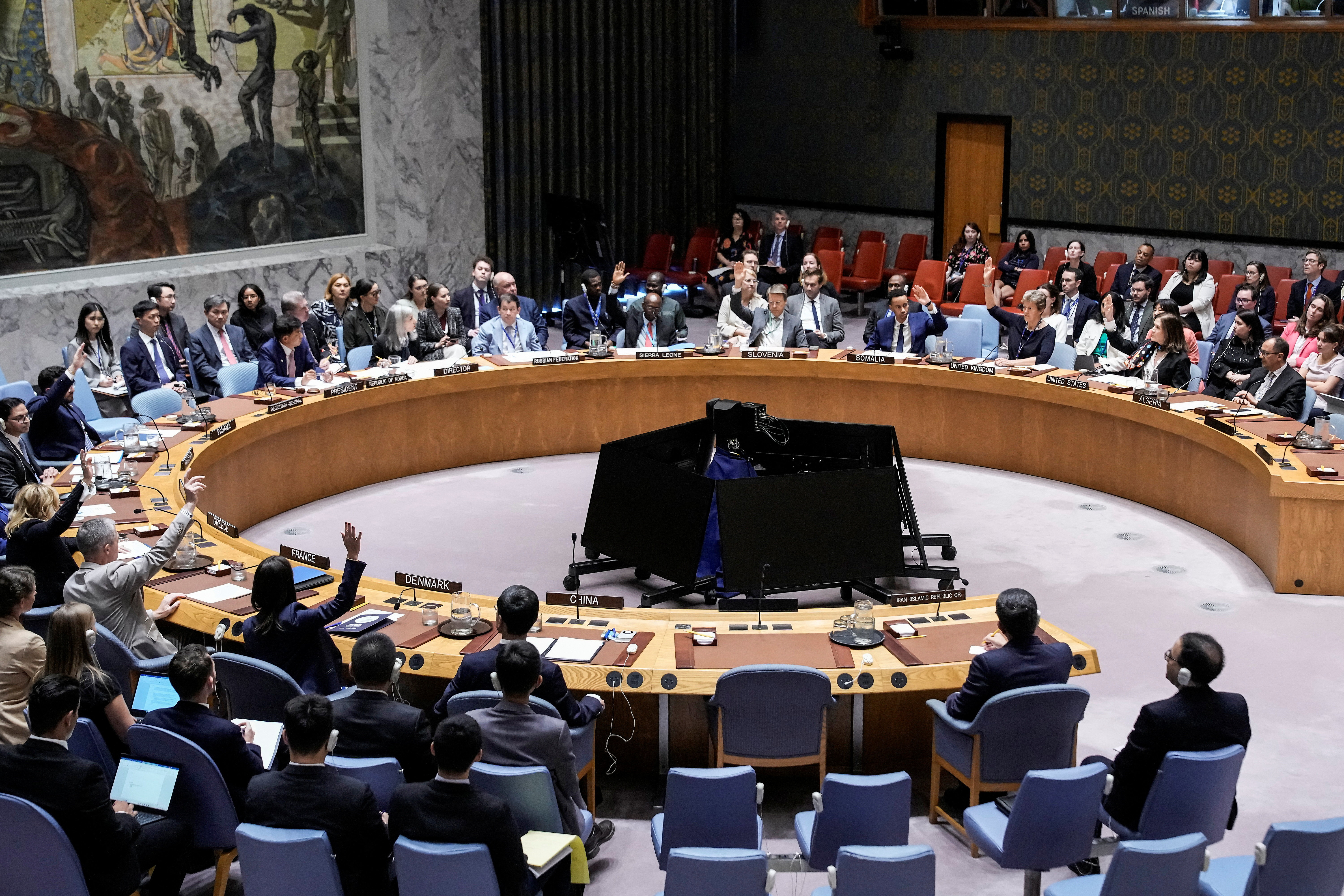
The UK, France, and Germany urged Iran to avoid escalating tensions and to engage in dialogue following the reinstatement of UN sanctions on Saturday.
The trio indicated they had “no option” but to restore the extensive measures against Tehran “as a final measure” due to its “ongoing nuclear escalation” and insufficient cooperation.
“We call on Iran to avoid any actions that may escalate the situation,” they stated in a joint declaration, adding: “The reintroduction of UN sanctions does not signify an end to diplomacy.”
Iranian President Masoud Pezeshkian affirmed last week that the nation does not aim to develop nuclear weapons, denouncing the return of international sanctions as “unjust, unfair, and illegal”.
The United Nations’ comprehensive economic and military sanctions were reinstated on Iran at 00:00 GMT on Saturday – ten years after they were lifted as part of a landmark international agreement regarding its nuclear program.
Iran escalated prohibited nuclear activities after the US withdrew from the agreement in 2016. Donald Trump exited the deal during his initial term, criticizing the Joint Comprehensive Plan of Action (JCPOA) brokered by his predecessor Barack Obama as faulty.
Discussions among the three nations and Iran during the UN General Assembly earlier this week did not yield an agreement that could have postponed the reinstatement of sanctions.
In a joint statement released early Sunday, the foreign ministers of the three European nations, referred to as the E3, declared: “As Iran repeatedly violated these commitments, the E3 had no option but to activate the snapback mechanism, resulting in the restoration of those resolutions.”
They also mentioned their intention to “keep pursuing diplomatic avenues and negotiations”.
They referenced Iran’s failure to “take the needed steps to address our concerns, nor to fulfill our requests for extension, despite prolonged dialogue”.
Specifically, they pointed out Tehran’s unwillingness to collaborate with the IAEA, the UN nuclear watchdog.
“Iran has not permitted IAEA inspectors to reaccess its nuclear facilities, nor has it provided the IAEA with a report detailing its high-enriched uranium stockpile,” the statement indicated.
Iran halted IAEA inspections following Israeli and US bombings of several of its nuclear facilities and military installations in June.
According to the nuclear Non-Proliferation Treaty, Iran is legally obligated to allow inspections of its nuclear sites, and on Friday, the IAEA confirmed that inspections had resumed.
However, while discussions with the IAEA are ongoing to find a resolution, Iran has signaled that a return to sanctions could jeopardize that process.
Pezeshkian has retracted his previous threats for Iran to exit the Non-Proliferation Treaty.
Nonetheless, speaking to the press on Friday, he added that Tehran would require assurances that its nuclear facilities would not be targeted by Israel in order to normalize its nuclear enrichment activities.
He also dismissed a US demand to hand over all of Iran’s enriched uranium stockpile in exchange for a three-month exemption from sanctions, stating: “Why would we entrap ourselves and put a noose around our neck each month?”
Iran announced on Saturday that it is recalling its ambassadors to Britain, France, and Germany for consultations.

